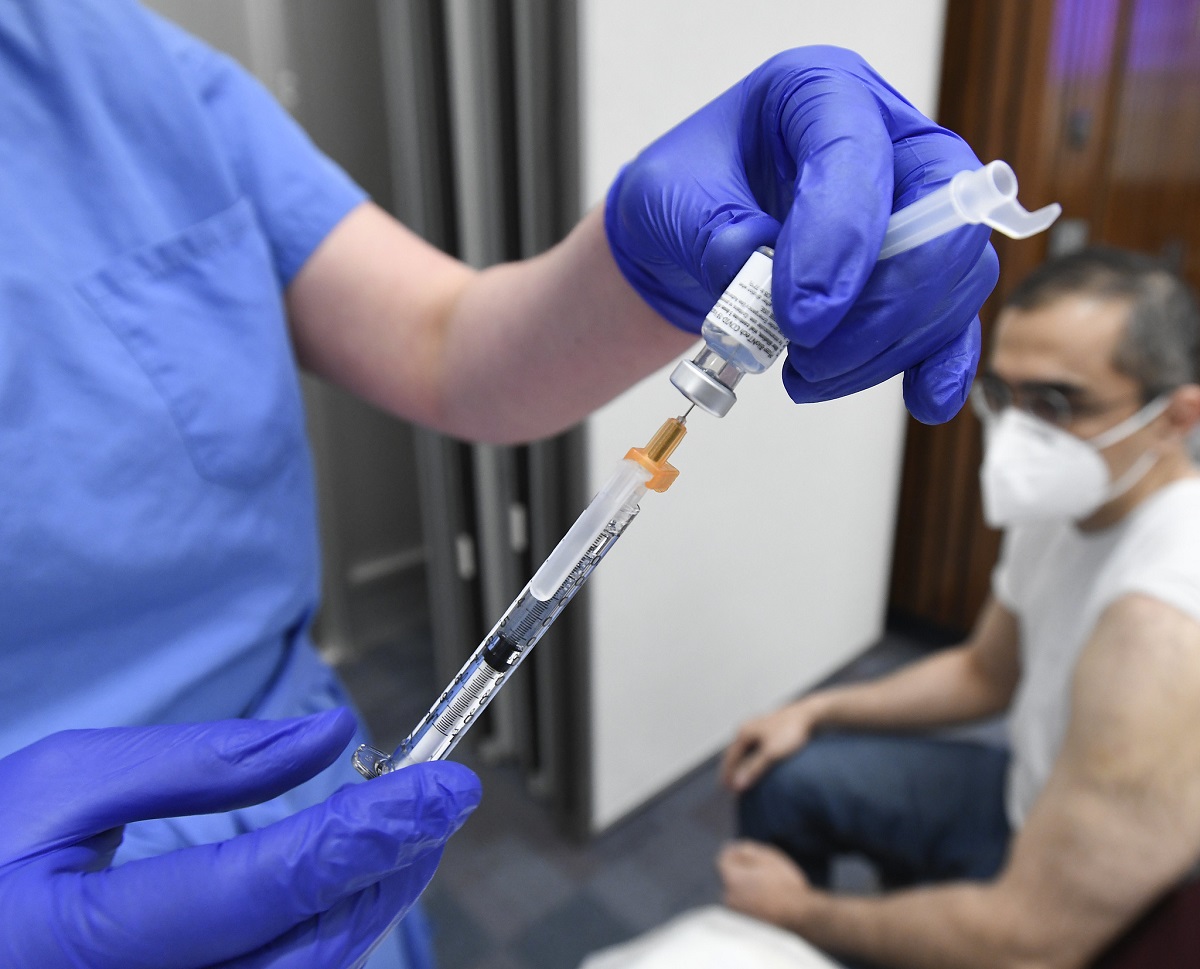Continue COVID-19 safety precautions, even after second dose of vaccine

The work continues.
Already, thousands of Penn State Health and College of Medicine employees have weighed the consequences and chosen to roll up their sleeves to help protect themselves and those they care about. Front-line health care professionals who received their first doses of the COVID-19 vaccine in December are already receiving the last of their two shots. Many of their colleagues have received their initial injections. Others are signing up every day.
The effort has moved beyond front line, direct patient care roles to personnel in other crucial areas.
“Think about everything that happens in a hospital or ambulatory setting. Those providers are on the front line and as such, they are our priority,” said Penn State Health CEO Steve Massini. “But also think of a world where you don’t have supply chain, IT environmental health or other support areas. Our ability to provide the highest level of care to our patients and keep our operations functioning depends on every member of our Penn State Health team. Our efforts go well beyond front-line folks and extend to everyone who works diligently behind the scenes.”
As efforts to protect the people who care for Penn State Health and the College of Medicine’s communities push forward, everyone – those who have been inoculated and those who haven’t – must continue to follow safety precautions the health system and College have been fine tuning since the pandemic began. The Penn State Health and College of Medicine Quarantine and Travel policy remains in place for all employees — whether they have received the COVID-19 vaccine. Staff should continue practices that are now old and reliable:
- covering mouth and nose with a mask
- washing hands often
- staying at least six feet away from others
- disinfecting surfaces
- monitoring symptoms
- staying home when sick
- avoiding gatherings with individuals outside of their immediate household.
The Moderna and Pfizer vaccines are 94.1% and 95% effective, respectively. However, questions remain about whether someone who has been vaccinated can still contract the virus but have no symptoms — and thereby can still spread it.
Until more is known, established safety precautions will continue.
If you're having trouble accessing this content, or would like it in another format, please email the Penn State College of Medicine web department.
